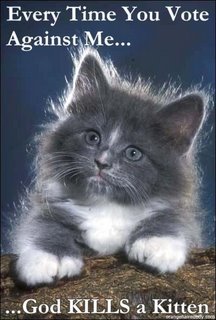The Terms of Immortality-A Book Review
 There is always a beginning, middle, and an end. Life is cyclical. In the book by Travis Hugh Culley, “The Immortal Class,” we observe his life through his eyes, at first as a child, which for him was quite extensive, then as a young adult trying to find his way into maturity; the world of uniformity.
There is always a beginning, middle, and an end. Life is cyclical. In the book by Travis Hugh Culley, “The Immortal Class,” we observe his life through his eyes, at first as a child, which for him was quite extensive, then as a young adult trying to find his way into maturity; the world of uniformity.Culley speaks of his observation of the “rhythm of the city” as watches “culture capital” of employers and employees perspectives each justifying their place within the social construct of daily life. He conveys the sentiment of the workplace environment, the daily politics of workers, of the temp, managers, and CEO’s.
In his youthful self, we find him defiant, struggling to find his way—and challenging authority of his parents, and the social control of neighborhood. His befriending of the “strange” neighbor and the “mythos” of the neighbor’s perceived mental capacity illustrates his rebellious attitude.
His personality of defiance resided within him well into his mid-twenties until the realization, the transformation of his sense of survival and very essence of subsistence was threatened. The “social control” from his mother begins to takes hold. Reminding him the only way a “mother” can, that he is responsible of taking care of himself in order for the world to “figure him out”—she simply says, “You’ll need to eat first…” This sly statement by his mother, reminded me of a cartoon from the 1990’s called Animaniacs, by Warner Bros. Studios, which had a pairing of two mice known as “Pinky and the Brain.” Brain, an oversized brained mouse and tiny body, was a genius (insanely so) that wanted to take over the world with his supported friend or sidekick—Pinky.
Pinky, in the cartoon, is supposed to be the insane one. He makes funny snarf noises, whistles, and faces. Pinky seems to be brain damage; even might have a bit of Tourette’s Syndrome from all the inappropriate outbursts that come out at untimely moments. Pinky is Brain’s friend no matter what; or, how many times Brain fails in attaining his goal. The one time they do successfully to take over the world is when Pinky has been “cured”—the stunned look on Brain’s face is classic—filled with amazement and pain, which eventuates Pinky into sabotaging his own success and reverting to type. Pinky is the “true” genius and he uses “Superman II” type moment in order for Brain to forget. In a sense, Pinky’s role was to be a supportive role of a parent; unconditional love—and smaltzy. He, Pinky, listens to the schemes of Brain no matter how hair-brained, unconventional, or out of the norm they are. Pinky supports Brain’s mad-hatter type ideas—and let Brain fail ad nauseam to gain experience from his mistakes.
Pinky, in the four-quadrant political model, is upper left, individual emotional, while Brain is an over-the-top lower, authoritarian, and rule of law systems type. So, what does this have to do with Culley’s book?
On pages 85-87, Culley in an emotive episode; in a condescending attitude tone with his mother, when she asks:
“How long do you think you can do this?”
Until the world matures. Until they figure it out,” he responds.
“Figure what out?” she asks.
“They can’t stop me,” he retorts.
“Why would they want to stop you?” she inquires patiently.
“I am going to win the top prize,” he insists.
Until the world matures. Until they figure it out,” he responds.
“Figure what out?” she asks.
“They can’t stop me,” he retorts.
“Why would they want to stop you?” she inquires patiently.
“I am going to win the top prize,” he insists.
Culley writes then, how his mother responds to his emotive state (upper left), “she took a deep breath and chuckled. ‘You’ll need to eat first.’” Although his mother may appear to be coming from the left quadrant of emotional concern, albeit there is some, she is actually coming from the space of lower left, group socialization, a form of system social control perspective, in that, coercion or silent ridicule is a used as a tool to correct an individual’s behavior. Culley through implication recognizes this.
On page 121, Culley begins to find his “consciousness.” Realizing that the world will move without him. He pontificates, “What would happen, if I were to be hit or disabled again? Having nothing, how could I recuperate? Is this what it feels like to have nothing left in the world? Is freedom the feeling of being prey to other people’s negligence? From the worker’s perspective, is freedom not failure? All this thinking; I had not surrendered.” Yes, he still a bit self-absorbed, Culley is beginning to express his version of self-awareness.
Knowingly aware that “action” is required, “movement is required,” and as he says, “If thought can catch you, so can language. If language can catch you, so can death…” In essence, from an upper left, intuitive emotional sense, Culley understands that his individual behavior, upper right, must take hold. He says, “If you question, you hesitate and that is dangerous… (p 125).”
Later on, Culley, crashes into a pedestrian, “a suit,” on his bicycle, and becomes “transformed.” To the extreme, Culley shows signs of being Bi-Polar from a laymen perspective, swinging from one extreme to another, are apparent. He is now on a high, from the accident with the “suit”—he is feeling invincible. Bicycle delivery infuses Culley’s ego and yet tempered to a certain degree. But as I purvey the travails of his misadventures, a nagging theme song underlies my thoughts—the theme music of “Pinky and the Brain” now becomes transmuted to the “Mighty Mouse” theme.
He tries to soothe us with antics as he battle with the natural environment of modernity. To import the sense of heroism throughout his text; somehow the world will be caught in his poetic trance as he tries to glide through as if he is the Roman god of Mercury—a deliverer of space, time, and chaos—if you will. His messenger status creates the view of spatiality; he sees the dance, and twirls before it. This begins a process for him, trying to embark on a category. He begins to think integrally as he describes the “congestion of a city.” He takes note of how harried life remains the same, even in slow motion. Culley’s reflection of how the pace of the city has remained unchanged despite the transition from horse and buggy to the horsepower of the metal machine is interesting to be sure. But the culmination of technology has always, in a sense, reverted within a city walls—no matter how much advancement been procured. After all, a city is the embodiment of the lower right governmental systems. It is essentially Platonic state of bureaucracy.
Invariably, with Culley we find him once again trying to convey a sense of community in the closing moments of his book with the death of a fellow bicyclist. His last chapter is the revelation and culmination of his green politics fully furled, in which, he invites environmental and ecological changes, and in turn, tries to redefine the subsistence of the socioeconomic classes. He asks, in a sense, the desire and the ambition of a people, of a nation actually, to return the hearth of Americana. To return to theme of community in order to reduce the stress filled world—and slow down. He counters his own words of staying in motion. He presupposes that such an active discourse can be possibly driven by Americans will be reborn from its isolationists flame of the Phoenix—and that the children of suburbia will return to the womb of the urban city.
He, Culley, has transformed himself from the individualist, upper right, with self-absorption to more of a emotional collectivist state—lower left—but has integrated to the quadrants of behavioral, psychological, governmental spaces, and yet even his integrated persona belies his megalomania of a mouse self shines, whether it is Brain or Mighty Mouse one cannot be sure.

Comments